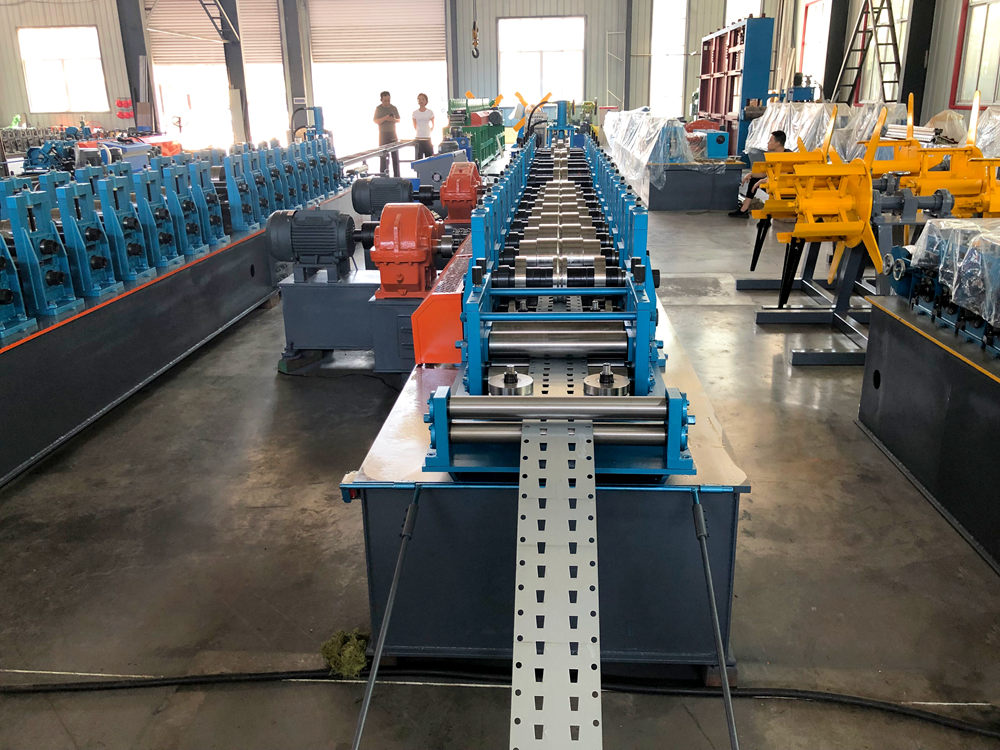
The Evolution and Importance of Pipe Making Machines
In the world of manufacturing, few innovations have had such a profound impact on industrial efficiency as the pipe making machine. These specialized machines have transformed the production of pipes, making it not only faster but also more precise and cost-effective. This article explores the evolution, functionality, and significance of pipe making machines in today's market.
Historical Background
The journey of pipe manufacturing can be traced back to ancient civilizations, where pipes were crafted from materials like wood and clay. However, as industries expanded, the demand for durable and versatile piping systems increased. The advent of the Industrial Revolution marked a significant turning point, leading to the development of sophisticated machines capable of producing pipes in bulk. The introduction of pipe making machines in the 20th century further revolutionized the industry, facilitating the mass production of pipes made from metals, plastics, and composites.
How Pipe Making Machines Function
Modern pipe making machines employ various technologies to ensure high efficiency and quality in pipe production. The process typically begins with raw material feeding, where coils or pellets are fed into the machine. The machine then shapes the material through processes such as extrusion, welding, and bending, depending on the type of pipe being produced.
1. Extrusion This is one of the most common methods used in pipe making. The raw material is heated and forced through a dye to create long, continuous lengths of pipe. This technique is particularly popular for producing plastic pipes, as it allows for uniform thickness and high quality.
2. Welding In the production of metal pipes, welding is a crucial step. Various welding technologies, such as TIG (Tungsten Inert Gas) and MIG (Metal Inert Gas), are utilized to join pieces of pipe together or to seal joints and seams.
3. Bending and Forming After shaping, pipes often require bending to fit specific applications. Pipe making machines are equipped with advanced bending technologies that allow for precise angles and curves, ensuring that the final product meets industry standards.
Advantages of Pipe Making Machines

The adoption of pipe making machines has brought numerous advantages to manufacturers and end-users alike.
- Speed and Efficiency Automated machines can operate at high speeds, dramatically increasing production rates compared to manual methods. This efficiency is crucial in meeting the heavy demands of industries such as construction, plumbing, and oil and gas.
- Precision and Consistency Advanced technologies enable precise control over dimensions, ensuring uniformity in every batch of pipes produced. This consistency is essential for applications where safety is paramount, such as in construction and infrastructure projects.
- Cost-Effectiveness While the initial investment in pipe making machines can be significant, the long-term benefits far outweigh the costs. The reduction in labor, waste, and production time results in lower overall costs and increased profitability for manufacturers.
The Future of Pipe Making Machines
As technology continues to advance, the future of pipe making machines looks promising. Innovations in robotics, artificial intelligence, and automation are poised to further enhance the efficiency and capabilities of these machines. Moreover, with a growing emphasis on sustainability, manufacturers are increasingly focusing on producing eco-friendly pipes, utilizing recycled materials and energy-efficient processes.
Additionally, the shift towards more specialized piping solutions, such as those used in renewable energy applications, is driving demand for customized pipe making machines. These machines are designed to cater to niche markets, ensuring that manufacturers can meet specific customer requirements.
Conclusion
In conclusion, pipe making machines play a critical role in the manufacturing sector, enabling efficient production of essential piping systems that support a wide range of industries. With their ability to enhance speed, precision, and cost-effectiveness, these machines are indispensable tools for modern manufacturers. As we look to the future, the continued evolution of technology in pipe making will undoubtedly lead to even greater advancements, ensuring that these machines remain at the forefront of industrial innovation.